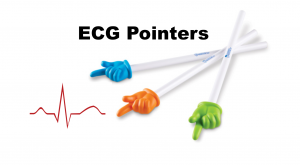Authors: Alex Koyfman, MD (@EMHighAK) and Brit Long, MD (@long_brit)
Following in the footsteps of the EM Mindset and EM Collective Wisdom series, emDocs is proud to introduce The EM Thinker series. This series will provide important considerations for the practice of emergency medicine.
1) Why is my septic patient who has received fluid resuscitation and is on a significant dose of vasopressor(s) not improving? Stop and think about the following each time: adequate fluid resuscitation // occult hemorrhage // other type of shock – anaphylaxis, cardiogenic, obstructive, etc. // profound electrolyte derangement (particularly hypocalcemia) // rare endocrine disorder (adrenal insufficiency, decompensated hypothyroidism) // tox ingestion // profound acidemia // abdominal compartment syndrome. Perhaps the data you have obtained is flawed. Are you missing something? Start from scratch in a systematic manner.
2) Elevated lactate does not equal sepsis! Elevated lactate doesn’t equal aggressive fluid resuscitation; know the harms of over-resuscitation. Think through the etiologies and what fits the patient in front of you. As usual, clinical judgment trumps diagnostic data.
3) Elevated troponin does not equal ACS! Why did you obtain the test? How is the test going to help you treat, diagnose, or disposition the patient? Think through non-ACS causes of elevated troponin.
4) If you are worried enough to obtain ancillary testing, explain abnormalities thoughtfully and let the patient know about any incidentalomas and specific need for follow-up.
5) Beware anchor bias as new, conflicting information becomes available. Challenge your working diagnoses. What fits, and what does not fit?
6) You have to put the legwork in at home. The eye doesn’t see what the mind doesn’t know. We must be always learning and challenging ourselves.
7) Accept that at times failure will occur. Learn aggressively from it. Disseminate lessons learned to the EM community in order to elevate future patient care and so that others learn from your mistake.
8) Ask your colleagues about challenging cases and struggles; you’re bound to face similar situations.
9) Take the time to learn a neat fact or two about a few patients each shift. Thank them for giving you the opportunity to meet them and take care of them.
10) Acknowledge each person in the room along with the patient; they’ll help you. Many times the family or significant others at the bedside can provide gold nuggets for your evaluation. Understanding their level of concern is useful to your decision making.
References / Further Reading:
REBEL EM – Occult Causes of Non-Response to Vasopressors
EMCrit – Stop Points
First 10 EM – Cognitive Errors
emDocs – Normal Lactate but Sick Patient
emDocs – Lactate Measurements
emDocs – Elevated Troponin
Emergency Medicine Cases – Decision Making in EM
Emergency Medicine Cases – Diagnostic Decision Making in EM








